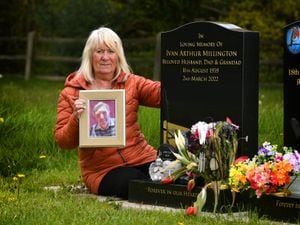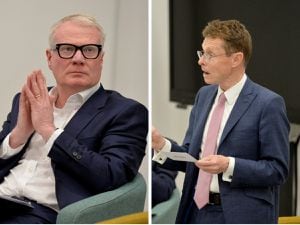Pushing the frontier: Astronaut Walt Cunningham touches down in Walsall to share his space story
Countless children aspire to be astronauts but Walt Cunningham is one of the select few who have actually been lucky enough to travel beyond the Earth's atmosphere.
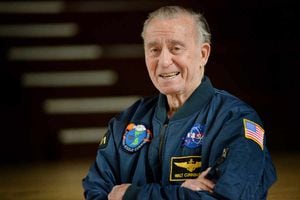
And the man himself is heading to the Black Country to share his out of this world experiences with an audience.
In 1968, Walt was part of an Apollo-7 crew sent on an engineering test flight which paved the way for Neil Armstrong stepping onto the moon less than a year later.
Not surprisingly, he is a man passionate about exploring space - and it is the 1960s 'golden age' which he will discuss when he appears at Walsall Town Hall on tomorrow evening.

In setting out what motivated the pioneers of that era, the American - who spent nearly 11 days in space and orbited the Earth 163 times - revealed his frustration at the lack of space exploration in the 21st century.
He said: "Back in the time of Apollo we were willing to push the next frontier much like Magellan when he was pushing the frontier to go around Earth for the first time.
"Most humans today have backed off from all that. The next frontier is inter-planetary flight.
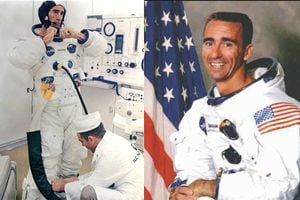
"We can only do that if we are willing to take risks. We are in a society that has become pretty risk averse and you can see that in the space programs."
Mr Cunningham, now aged 83, is a strong believer the benefits of pushing boundaries go far beyond the initial achievement.
He added: "When we went to the moon that was an accomplishment which was nice, it was very impressive, but the benefit that fell out to all of us was technology and the breakthrough and the mental aspects of going and doing these things.
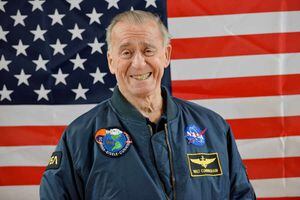
"For example cameras have hundreds times more memory than we had in the computer which was used to go to the moon.
"It happens in all kind of fields, in medicine, we have got to be willing to exceed where we are now in order for our children and grandchildren to benefit going forward."
One of the reasons for the slowdown in space exploration, according to Mr Cunningham, is the difference in background of many of today's astronauts.
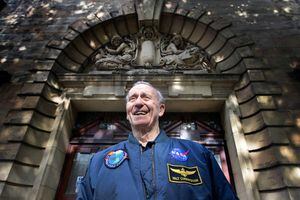
Whereas he was a fighter pilot, now most of those who reside at the International Space Station are scientists.
Mr Cunningham admitted we are unlikely to see mankind on Mars - the next frontier - any time soon.
His frustration at a perceived lack of ambition in today's explorers is matched in scale only by his pride in the 'golden age', when the public watched in awe as nation's competed to go further and further beyond the known world.

